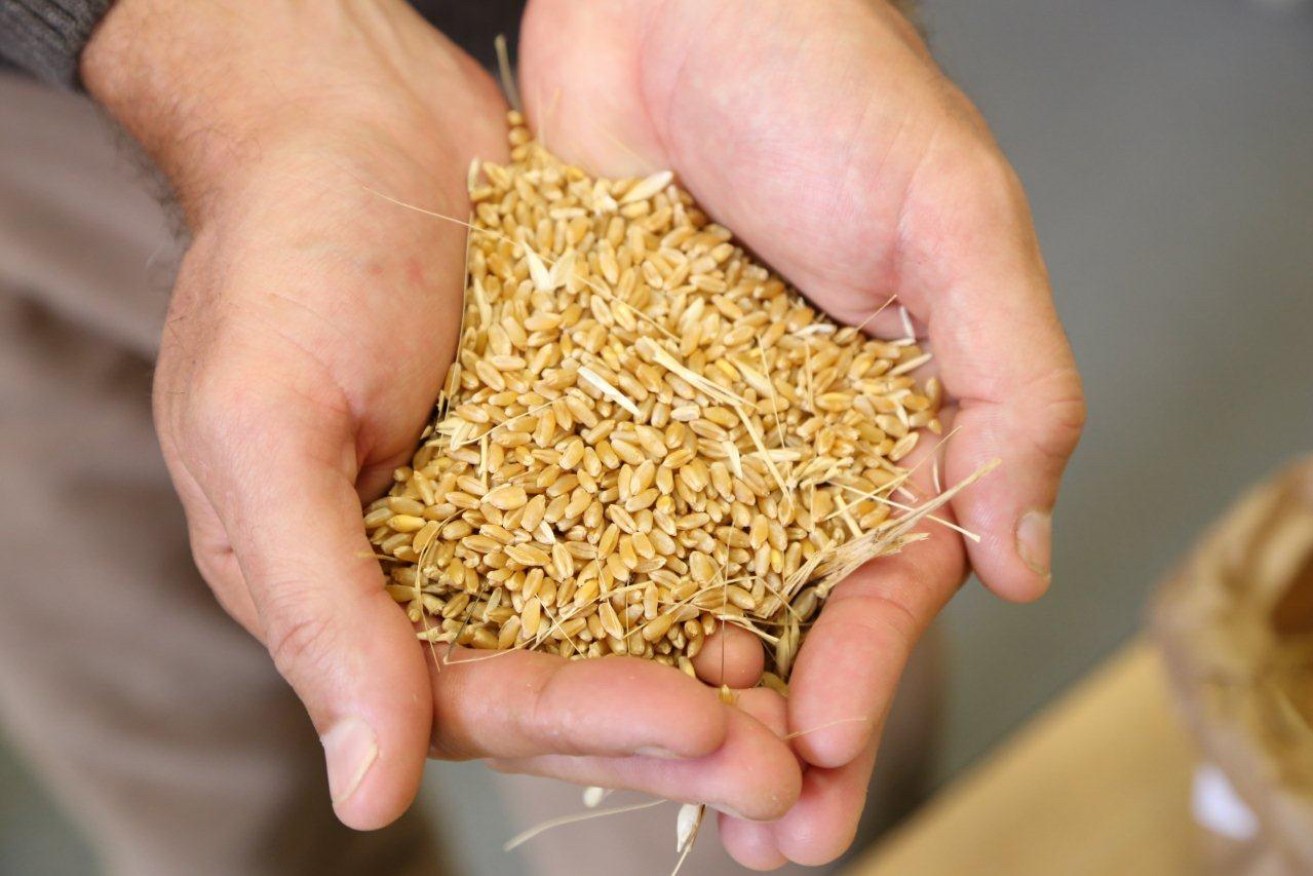Wheat variety reaps overseas rewards for SA
A variety of locally bred durum wheat that proved unsuccessful in Australia is set to deliver huge royalties to the University of Adelaide after it was found to flourish in South America.


Yawa durum wheat didn't suit South Australian conditions but flourishes in South America. Supplied image
The University of Adelaide, together with its partners Grains Research and Development Corporation and the NSW Department of Primary Industries, last month finalised a licensing agreement with Chilean seed company Isopro to grow its Yawa variety and sell the milled grain or semolina across South America.
Durum wheat breeder Associate Professor Jason Able from the university’s School of Agriculture, Food & Wine has built the relationship over the past five years that led to the agreement with Isopro. He said conservative business projections showed royalties – paid at the rate of AU$4.50 per tonne of grain – could reach $500,000 a year within seven years.
The university sent one tonne of the seed to Isopro last year, which produced 32 tonnes of seed in February when harvested. That seed was all sold to growers who are expected to harvest about 1200 tonnes in 2018.
“Of this, about 800 tonnes will be sold to local mills and 400 tonnes kept back for seed with a potential to produce a lot more the following year,” Able said.
“In the years ahead it should do very well and become a nice little money spinner.
“We will actually get quite a big dividend from year two up as the seed sales start to ramp up.”
Almost no durum wheat, which is mainly used to make pasta, was grown in southern Australia until the 1990s when Adelaide-based San Remo Macaroni Company and a handful of growers approached the University of Adelaide about developing varieties that could handle the often-harsh conditions in South Australia.
Two decades and several new varieties later and the southern region of Australia is producing durum wheat and pasta of such high quality it is being snapped up around the globe.
The Yawa variety was bred by the late University of Adelaide Professor Tony Rathjen and Dr David Cooper and released in Australia on September 4, 2012.
However, even with its exceptional yield potential, its small grain size in dry years meant it was not suitable to South Australian conditions and it has now all but vanished from the market.
A 50-gram sample of the seed was sent to Chilean researchers at Isopro and the University of Talca under a material transfer agreement in 2012. Plentiful water for irrigation from the Andes and slightly cooler growing conditions allowed Yawa to thrive in Chile, outperforming local varieties by up to 40 per cent in Isopro trials.
The rich yellow colour of the South Australian-bred grain will also give Yawa a major quality edge in South America, Able said.
He said there were strict rules around the licence, which meant the durum could only be grown in Chile and the milled grain or semolina sold only in South America.
“We didn’t want to see competition against our growers in a situation where if it really took off and they wanted to export it to Italy then that would be directly competing with Australian growers, which is not on,” Able said.
“I’m a breeder for Australia – I’m not breeding durum varieties for Chile – so it was one of those serendipitous things.”
Chile has only become a self-sufficient durum producer in recent years and reaps about 145,000 tonnes a year. Isopro is hoping the yield and quality benefits will quickly convince existing growers to switch to Yawa and also lure new growers into the industry.
Outside of Chile there is very little durum grown in South America with the bulk of pasta made from grain imported from Canada or Mexico. Peru imports about 300,000 tonnes of durum, Colombia 150,000 tonnes and Bolivia and Equador some 50,000 tonnes each year.
Able will travel to Chile next month to conduct an audit of plantings and speak with growers about farming techniques to help maximise protein levels in the durum.
“Where Isopro want to get to is they want to be able to export into Peru and Colombia because it is a big buyer of durum from Canada and Mexico and those pasta companies there have had discussions with Isopro and are quite excited by what they’ve seen with Yawa,” he said.
“There’s this golden opportunity for Isopro to really take a step up and dominate some of the market share if they can get a substantial number of growers to produce enough grain to be milled and distributed around these other South American countries.”
Isopro started in 2008, the same year Australia and Chile signed a free-trade agreement, and has worked closely with the University of Talca.
It had previously brought over many seed varieties from Australia to be grown in Chile including canola and lupins, which led it to trial oats and durum from South Australia.
Isopro founder Stuart Thomas is a former South Australian who moved to Chile over a decade ago.
He said Yawa had consistently out-yielded all other varieties in a number of trials over the past four years, on some occasions by up to 40 per cent. Thomas said it had also proved far superior to local varieties for black point resistance and in overall quality.
“We are absolutely thrilled with Yawa and the excellent yields it manages to achieve over here,” Thomas said.
“With Yawa, our ultimate goal is to increase the area under durum production and destine that production to other South American countries, either as grain or semolina.”




